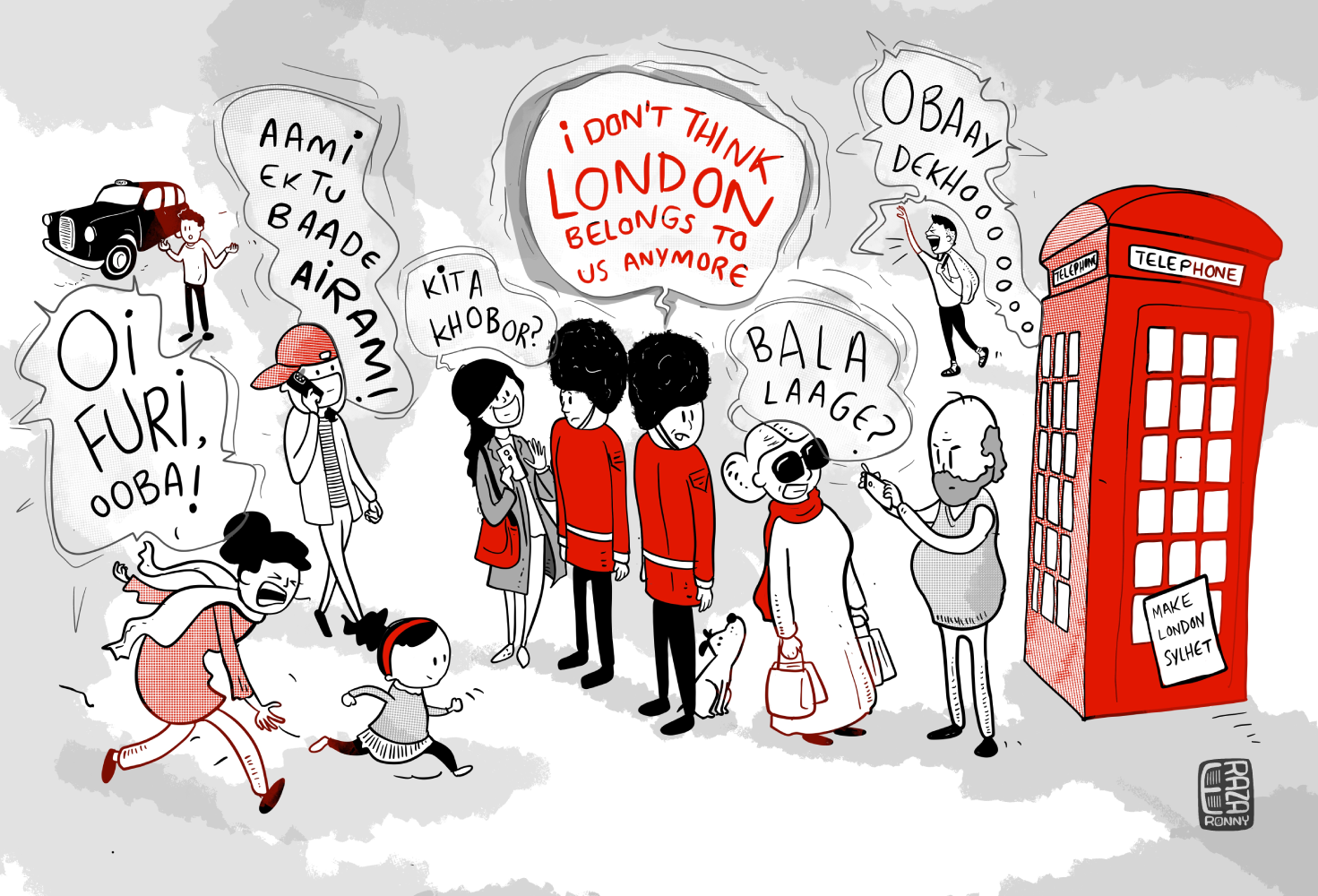Lost in (Sylheti) Translation
When people discover that my family originates from Sylhet, the first question they ask me is if I speak the Sylheti language. The regional dialect of the Sylhet division is so distinct from the typical Bangla we speak, that it is often considered a separate language. On such occasions, I would give them a coy reply, “Thura, thura.” A little bit of Sylheti is what I’m capable of speaking.
But I don’t tell them the truth. I don’t tell them that when they make fun of the language by enunciating each word distinctly, I’m reminded of the fluency with which my grandmothers speak. I don’t tell them that if needed, I too can perhaps hold entire conversations in the language. I don’t tell them any of this because in certain social circles of a metropolitan city like Dhaka, regional languages have gradually lost their footing. I don’t tell them all this because to them, Sylhet is a mystical land where all its inhabitants are somehow connected to the city of London and where they speak in a strange dialect that makes outsiders laugh.
It is astounding to think how aptly Sylheti people can express certain emotions in a rather specific way. “Kita kita khorer” can be the inexplicable feeling related to a wide range of emotions from heartburn to heartbreak. Any kind of physical or mental suffering can be described as “beesh”, meaning poison, while a severe kind of bodily pain becomes “baedna”. After a particularly exhausting day, nothing expresses how utterly broken you feel physically than by saying “Shorir bhainga forer”.Perhaps one of the strangest word usages in Sylheti language is that of the word “Bengali”. A non-Sylheti person is referred to as Bengali, because prior to the partition of British India, Sylhet was not a part of Bengal, but was made a part of the Province of Assam in 1874.
In my family, my grandparents’ generation and my parents’ generation conversed among themselves effortlessly in this language of their ancestors. But when it came to interacting with us youngsters, they made a conscious effort of switching to shuddho Bangla. This resulted in a strange predicament where we heard a language being spoken, but weren’t given the opportunity to speak it ourselves.
I understood the reasoning behind this. Bangla was taught at home and English was taught at both home and school. Additionally, there was also this fear of developing a habit where we end up speaking only Sylheti and English languages, a practice prevalent specifically among British Bangladeshis living in London, and a fate our elders desperately wanted us to avoid. In between learning and perfecting these two languages, the practice of Sylheti dialect rather lost its importance. It remained in the background, like an old piece of family heirloom. Valuable, yes, but not really contributing to our daily lives in any way.
As I got older, the language continued taking a backseat in my life. Sure, I kept hearing it being spoken at home. And just for fun, I myself would infuse random words in between conversations with my elders. A little “jee oy”, or a random “bala” – meaning “yes” and “good”, respectively – is the extent to which Sylheti had a presence in my speech.
And yet, these little bouts of expression filled me with a lot of joy. Speaking Sylheti made me feel more connected to my loved ones, in a way that is different from how it did when I spoke Bangla. It makes me anxious to think one day this language might completely disappear from my life. If that happens, I will lose a certain part of myself, as Sylheti is very much ingrained in my identity and the person that I am.
